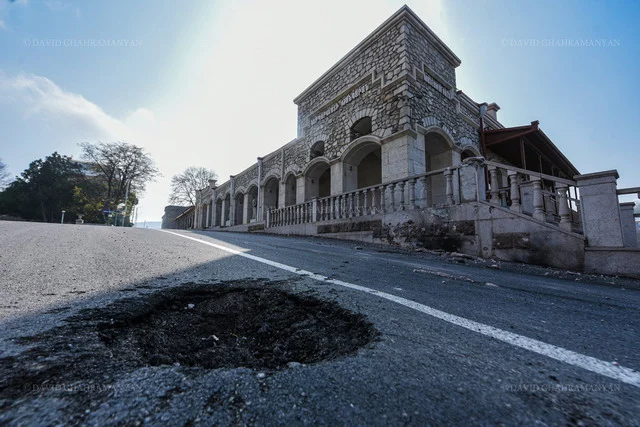“Today is the 26th anniversary of the liberation of the stronghold of Armenian dignity, Sushi, and first of all, I want to congratulate everyone on that vital and turning-point victory. There is great symbolism in the de jure victory of the non-violent, velvet people’s revolution in Armenia, which must be recognized today, on the anniversary of the liberation of Shushi,” Prime Minister candidate Nikol Pashinyan said on May 8, 2018.
On January 20, 2021, in response to a deputy’s question, Prime Minister Pashinyan said, “In other words, you want to say that Shushi would be Armenian with a population of over 90 percent Azerbaijanis?”
Simple logic suggests that if Shushi is ‘a stronghold of Armenian dignity’ and its liberation is a ‘vital and turning-point victory’ (which I agree with 100%), then that city is Armenian. Otherwise, why was the Prime Minister drinking and dancing on May 9, 2019, in Shushi if the status of that city is Azerbaijani? Or, perhaps Pashinyan has given up on the slogan, ‘Artsakh is Armenia and that’s it.’ In any case, he should have made an exception: ‘Artsakh is Armenia, except for Shushi.’
Shushi was Armenian from May 8, 1992, until November 2020, and that city was not unhappy and colorless. The head of the Diocese of Artsakh was there, which, I think, makes the city Armenian. In particular, there are four museums in Shushi: the State Museum of Fine Arts, the State Museum of Geology named after Professor Grigory Gabrielyan, the Shushi History Museum, and the Shushi Gallery. The Shushi Gallery included works from Saryan, Carzou, Jansem, and Hakob Hakobyan.
Read also
The leader of Armenia, I believe, should not put the emphasis on the ‘non-Armenian status’ of the city. Instead, he should raise the issue of maintaining the cultural heritage of the city. Or did the status of our artists also change after the military defeat?
Yes, the majority of the population in Shushi in 1988 was Azerbaijani. The population of Azerbaijanis in the city was the result of policies developed by the Kremlin and Baku over the past few decades. I believe that the citizens of independent Armenia and its government should not base their opinions on those results. We need to at least remember the status Shushi had until 1920, the Armenian educational and cultural institutions the city had, the number of Armenian books and newspapers published there, and the number of Armenian scientists and artists who took their first steps in the city. We do not have the right to ignore or glorious victories, history, and culture in an attempt to justify the defeat and loss of Shushi.
… In 20-30 years, our school textbooks will say, “The cultural and spiritual center of Armenians, Shushi, was liberated during Ter-Petrossian’s administration, and it was handed over to Azerbaijanis during Pashinyan’s…”
Aram Abrahamyan




















































